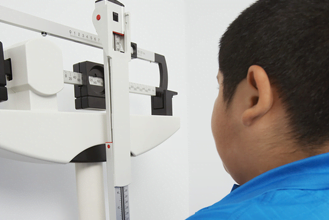Today, consumers can purchase dozens of medical tests without a prescription; tests that tell them whether they are pregnant, have a urinary infection, or their cholesterol is too high, for example.
Should direct-to-consumer (DTC) genetic tests be as readily available? These are the mail-in saliva tests that purport to provide consumers with information concerning their genetic susceptibility to Alzheimer’s disease, type 2 diabetes, heart disease, osteoporosis, some cancers and what have you.
Today, consumers can purchase dozens of medical tests without a prescription; tests that tell them whether they are pregnant, have a urinary infection, or their cholesterol is too high, for example.
Should direct-to-consumer (DTC) genetic tests be as readily available? These are the mail-in saliva tests that purport to provide consumers with information concerning their genetic susceptibility to Alzheimer’s disease, type 2 diabetes, heart disease, osteoporosis, some cancers and what have you.
 DTC genetic tests are a bit different from the genetic tests that have been used for decades in prenatal and newborn screening programs and in predictive testing (as exemplified by the BRCA test for breast cancer risk). The difference is not in the substrate being tested (in both cases, it’s DNA) but in who ‘owns’ the testing process. For the legacy DNA tests, health professionals own the process. As per protocol, they obtain permission (informed consent) from patients before ordering the test, and provide consultative services and support for the patient once the results are known.
DTC genetic tests are a bit different from the genetic tests that have been used for decades in prenatal and newborn screening programs and in predictive testing (as exemplified by the BRCA test for breast cancer risk). The difference is not in the substrate being tested (in both cases, it’s DNA) but in who ‘owns’ the testing process. For the legacy DNA tests, health professionals own the process. As per protocol, they obtain permission (informed consent) from patients before ordering the test, and provide consultative services and support for the patient once the results are known.
In contrast, DTC genetic tests transfer ownership of the genetic testing process to consumers. A person can decide for himself whether and when to get DTC genetic tests. She doesn’t need permission from a provider, and has no obligation to share that intensely personal information with her provider.
This bothers many physicians, bioethicists and consumer advocates. They point out that DTC genetic test reports can be difficult to interpret (for physicians as well, I might add, despite a ‘party-line’ view that physicians are universally and inherently qualified to do so). They decry the lack of regulatory oversight of the testing facilities which might help assure the accuracy and reliability of the information. Furthermore, reports of “egregious…deceptive marketing” among the marketers of some DTC genetic testing products raise the likelihood that consumers will be harmed, they say.
People who are swayed by these arguments have called for regulatory oversight of DTC genetic testing. In fact the FDA has, in certain limited instances, already begun to do just that.
Among the loudest supporters of this position are physician organizations, who favor regulations that transfer ownership of DTC genetic testing to physicians who would then serve as custodians of the new technology, just as they do with the traditional genetic tests mentioned above. This regulatory model would assure that physicians could help consumers interpret the complex results, understand the limitations of the tests, and so forth.
Set the Data Free
I disagree with this latter position. People who want access to their genetic-risk information should be free to pay their own money to obtain it, period. The only place where regulation has a role in DTC genetic testing is to assure the quality and reproducibility of the results being generated. But that’s it.
It’s almost never a good idea for governments to impede an individual’s right to access information, no matter its source. The only exceptional circumstances in which information-restrictive policies are a good idea are when the information can adversely impact the health, safety and well-being of other people, and when key national interests would be jeopardized by unfettered access to it (are you listening, Julian Assange?).
Take the case of Sarah Palin for example. When the Republican lightening-rod infamously said we should ‘target’ politicians whose beliefs didn’t correspond to hers, that was a loaded message that could plausibly have encouraged others to display violent behavior. Palin’s statement comes much closer to the exceptional circumstance mentioned above, yet almost no one advocates ‘regulating’ the dissemination of public statements like that. It’s free speech and all.
In contrast to the Palin statement, information contained in DTC genetic test reports are far less likely to jeopardize the health and safety of other people. In fact, it is the most intensely personal information imaginable. It certainly isn’t ‘telling’ the consumer to ‘do’ anything. In this light, it is patently absurd to invoke regulations (of DTC genetic testing) that would actually prevent people from obtaining information about themselves.
Come to think of it, health consumers deal with vague medical information all the time. The risks and benefits of screening for and treating prostate cancer is a great example, as is the ever-conflicted literature on the risks and benefits of alcohol consumption.
And you know what? Consumers have muddled through. Better than that, actually, especially nowadays with so many excellent sources of health information on the Internet.
And let’s not forget that millions of uninsured people in this country have no access to preventive services, anyway. It’s a bit paradoxical for our government to say one one hand that we aren’t providing you with health care and on the other, that we are’t letting you access information about your own body unless you do it under the supervision of a physician.







